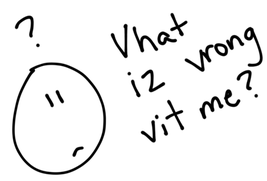|
by Marla White It would seem like dialog would be the easiest thing to write in a script. Structure is something writers have to work hard to learn and adapt, but we all speak, right? And we all have people throwing words at us, sometimes at really loud, harsh levels – how hard can it be to use all that experience to put interesting words in our characters’ mouths?  Don’t kid yourself, pithy dialog from the likes of Graham Yost, Aaron Sorkin or Chuck Lorre is far from easy to accomplish. The second most common problem in most of the many, many scripts I’ve read in my career is poorly written dialog. You want your dialog to sound natural and authentic, but know that it isn’t going to reflect exactly the way real people talk. It’s more of a heightened version of dialog in real life. Think C.J. Craig vs. Sean Spicer and you’ll get the picture. So how do you write realistic sounding dialog that’s better than the way real people speak, yet sounds authentic? There’s no easy way to figure it out other than lots and lots of practice, but here are a few tips that will help you get your stellar dialog groove on. 1 - Say your dialog out loud. Look, nobody wants to be that crazy guy at Starbucks mumbling to himself while typing away so make this an at home activity, but it will really help you hear if the dialog works when you actually hear it spoken out loud. You don’t have to act it, just saying it will make it clear when a sentence is a clunker or – important for the comedy writers out there – a joke doesn’t work. Better yet, if you have friends who are willing to read your dialog out loud in your own homemade table read it works even better. Again, they don’t have to be actors, just people who can read. 2 - Be sure your main characters have unique voices Read just one character’s dialog straight through to be sure they always use the same terms, slang or level of sophistication. If you have one character that is constantly making cultural references, be sure no other character just randomly starts to thrown in a Spider Man reference unless it’s somehow connected to cultural reference guy. If one character is a robot who never uses contraction, read all of their dialog in one setting to be sure it’s consistent and a unique tick for that character. A word about accents – because everybody wants to write accents. Don’t. Okay, yes if your character is from the south they will reference things like Piggly Wiggly, and burgoo, but avoid the temptation of writing their dialog with an accent, like “This here burgoo is cotton pickin’ good.” Write out cotton picking. Of if the character is French, don’t write “Zee car, she it getting away,” just write the car. If you’ve established where the character is from the reader will insert the accent on their own and the actors will certainly know what to do. It’s not too many pages into a script before that kind of stuff is super annoying to read.  3 - Track to be sure your dialog makes sense for the time & place I have read scripts that are supposed to take place in the 1800’s where the characters say things like, “Seriously? That did not just happen.” If you’re going to write a script set in a certain time or place, research the beans out of it to make sure it’s accurate. And then step back from accurate and read it out loud to see if it sounds good. If your story is set in the 1800’s, you may not want to use exactly the patterns of speech from the time, but use words and make reference that actually existed back then. Starz show “Outlander” set in 1700’s Scotland does a great job of sounding authentic even when they’re cheating just a wee bit. The best writing uses every single word of a script to convey multiple meanings all at once. It’s particularly important to use your dialog to pack as much information about your character as you possibly can so the audience gets to know them as quickly and efficiently as possible. If they’re posh, they’ll use certain words that a character from a blue-collar background wouldn’t and vice versa. Don’t think of dialog as just what they say, use your characters dialog to inform us about them AND the message they’re getting across. Need some brushing up on your dialog? Contact me for a consultation!
0 Comments
Leave a Reply. |
Marla WhiteCoaching writers who are ready to bring their pitch or script to the next level. Archives
September 2023
Categories |


 RSS Feed
RSS Feed